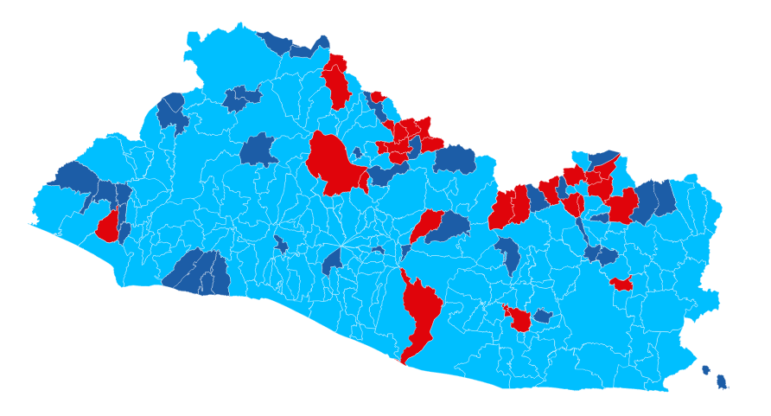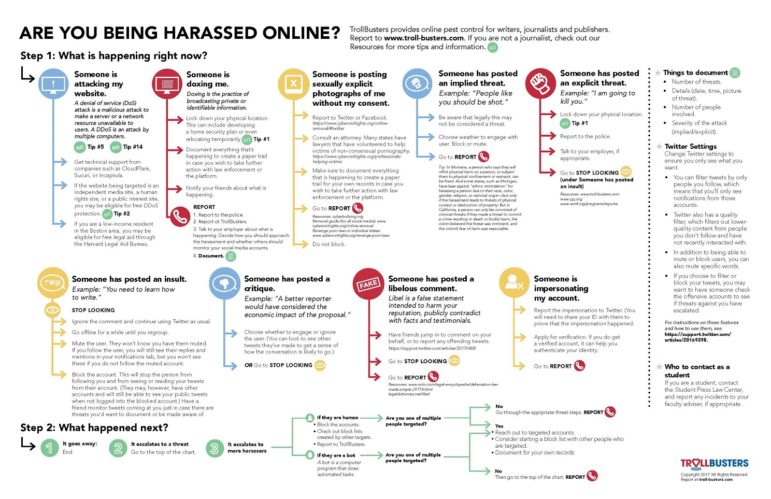Stories

News & Analysis
How Foundation Funding Is Shifting International News
Funding by private foundations is filling gaps in mainstream news coverage, especially in areas like investigative, international and local journalism. However, researchers have found that this funding is inadvertently shaping the boundaries of international nonprofit journalism.

Data Journalism
GIJN’s Data Journalism Top 10: Lying Charts, Flu Tracker, Soaring Alcohol Costs, Taxing Football
What’s the global data journalism community tweeting about this week? Our NodeXL #ddj mapping from February 25 to March 3 finds a @nytimes profile of its much admired data editor @amandacox; a flu tracker by @morgenpost; and a double dose of skepticism in @amandabee’s roundup of bad data interpretations and @albertocairo’s “How Charts Lie” book.


Reporting Tools & Tips Teaching & Training
The Daily Quiz That Teaches Journalists How to Geolocate Images
Quiztime is a Twitter game beloved by journalists and other online sleuths who play it to hone their geolocation skills. Every day, one of the quizmasters tweets a mysterious image, and participants try to figure out where in the world it was taken by examining the minutest of clues.

Case Studies
How They Did It: Mapping the Fiery Chaos of DC’s 1968 Riots
For the 50th anniversary of the riots that rocked Washington, DC after Rev. Martin Luther King Jr.’s assassination, the Washington Post mapped the extent of the rioting throughout the city thanks to data compiled from declassified Secret Service reports and archival city planning documents.

News & Analysis
Document of the Day: Cooking Classified Soviet Borscht With FOIA
For over 50 years, the Central Intelligence Agency kept a tasty secret: a translated copy of the Soviet Army’s 1948 “Manual for the Cook-Instructor of the Ground Forces in Peacetime,” complete with borscht recipes.

Data Journalism
GIJN’s Data Journalism Top 10: FT’s Chart Quiz, 65 Years of Human Rights Data, Build a Brexit Voter
What’s the global data journalism community tweeting about this week? Our NodeXL #ddj mapping from February 18 to 24 finds a fun @FinancialTimes quiz that tests your ability to read charts, the creation of a @DataVizSociety to foster engagement in the data visualization community and data viz designer @fedfragapane’s analysis of Human Rights Protection data from 1950 to 2014.

Case Studies
Skeletons in the Closet: How VICE Arabia Exposed Cadaver Smuggling in Egypt
As VICE weathers through cutbacks, VICE Arabia is betting on investigative journalism to set it apart from the competition in Arabic-speaking countries. Its team’s first big scoop exposed a smuggling network that exhumed corpses to sell them to medical students, who needed them for their studies. VICE Arabia’s senior editor tells GIJN how they uncovered the story.

Case Studies
A Lesson in Investigative Reporting from ICIJ’s Implant Files
When Washington, DC-based journalist Scilla Alecci began investigating a story that would later become part of the Implant Files, she hit a brick wall: Hospitals in India wouldn’t answer her phone calls. So she took the advice of an Indian colleague and booked a flight over. Together, they started knocking on doors all over the country, leading them to unexpected discoveries.

Fellowships To Attend the 11th Global Investigative Journalism Conference
The Global Investigative Journalism Network, Netzwerk Recherche and Interlink Academy are delighted to be offering, with the help of our sponsors, more than 200 fellowships to attend the premier international gathering of investigative and data journalists this year. The 11th Global Investigative Journalism Conference will be held in Hamburg, Germany from September 26 to 29, and will feature over a hundred exciting panels, workshops, and networking sessions.

Case Studies
How They Did It: Building a Database of Police Use of Force in the US
After a landmark New Jersey supreme court ruling made police use-of-force reports fully available to the public, NJ Advance Media decided to dig in. They fought tooth and nail to get their hands on the reports and create the United States’ most comprehensive statewide database on this issue.

The 11th Global Investigative Journalism Conference — A Sneak Preview
The Global Investigative Journalism Conference is the world’s largest international gathering of investigative and data journalists. Called “The World Expo of Muckraking,” the conferences have brought together over 7,000 of the globe’s most enterprising people in media since 2001. Held only once every two years, the conferences are widely credited with playing a key role in the rapid global expansion of investigative and data journalism. #GIJC19 — scheduled for this September 26-29 in Hamburg, Germany — will be our 11th conference. We expect over a thousand journalists from 130 countries.

GIJN Welcomes Four New Member Groups From Italy, Mozambique, Turkey, US
The Global Investigative Journalism Network is delighted to welcome four new member organizations based in four countries, including a nonprofit investigative journalism site in the United States, a foundation that supports and produces investigative data journalism in Italy, a foundation supporting investigative journalism education in Turkey and a group from Mozambique that is focused on journalism training and media development.

Data Journalism
GIJN’s Data Journalism Top 10: Earth’s Resources, “Good Data,” Who Owns Berlin
What’s the global data journalism community tweeting about this week? Our NodeXL #ddj mapping from February 11 to 18 finds learning opportunities from @utknightcenter and @WorldResources, while @Tagesspiegel and @correctiv_org ask who owns Berlin’s housing and @LacePadilla examines what makes a good visualization.

‘Like a Punk Rock Band’: How The Intercept Built a Home for Investigative Journalism in Brazil
The Brazilian version of The Intercept is carving a solid spot for itself in the country’s journalism landscape. With a focus on human rights abuses, police violence and politics, The Intercept Brasil’s investigations have attracted a young audience and an unexpected amount of donations, its executive editor tells GIJN.

Reporting Tools & Tips
Making a Newsletter: What Happens Before Nonprofit Newsrooms Hit Send?
Newsrooms are increasingly embracing newsletters as they seek to engage and grow their audiences. But there’s more than one way to tackle the form. Here’s a behind-the-scenes peek at what goes into creating newsletters for nonprofit newsrooms that explore single-subject issues, like education or gun violence.

Reporting Tools & Tips
25 Ways Community Members Can Support Your Newsroom
Media outlets’ communities have a lot to offer — and often, they would like to help. Here are 25 jobs that community members can do to aid newsrooms and examples of how to best include them.

Reporting Tools & Tips
Document of the Day: Online Pest Control for Journalists
It is unfortunately becoming easier and easier to harass journalists online through the use of technology such as bots, with the intent to intimidate and silence truth-tellers. These attacks can be relentless and if left unchecked, can be a real threat to journalists’ mental health and reputation. To deal with these online “pests,” TrollBusters created an infographic that offers clear steps on how to deal with various types of cyberviolence ranging from doxing to sexually explicit photos.

Data Journalism
GIJN’s Data Journalism Top 10: ICIJ’s Datashare, Visualization Talkies, Kyrgyzstan Labor
What’s the global data journalism community tweeting about this week? Our NodeXL #ddj mapping from February 4 to 10 finds exciting releases with a document analysis tool by @ICIJorg and an audio-driven visualization tool by @f_l_o_u_r_i_s_h, while @kloopnews highlights domestic labour imbalance in Kyrgyzstan and @davidottewell emphasizes that data journalism is not just for nerds in a corner.

Reporting Tools & Tips
Where Do ProPublica’s Investigative Reporters Find Their Story Ideas?
A reader asked ProPublica Illinois how the media organization finds new story ideas. Reporter Jodi S. Cohen, who was just as curious as the reader, spoke to her colleagues to find out where they got their inspiration. From fleshing out ideas found in other colleagues’ stories to digging into data anomalies, and even paying extra attention to an idle truck parked at an abandoned gas station, their answers show that there are a myriad of ways in which inspiration for your next big story could strike.

Global Conference: Call for Research Papers/Abstracts
The 11th Global Investigative Journalism Conference, scheduled for this September 26-29 in Hamburg, Germany, will feature an academic research track. Journalism professors and researchers worldwide are invited to submit research paper abstracts highlighting trends, challenges, teaching methodologies, new developments and best practices in investigative and data journalism. Abstracts are due April 8, 2019.

Case Studies
How Periodistas de Datos Aggregated the Profiles of Over 300 Data Journalists
Looking for a data journalist working in Spanish? Periodistas de Datos aggregates up-to-date information on data journalists working across Spain and Latin America. The platform’s creators explained to Maria Crosas Batista how they built it.

Reporting Tools & Tips
Mojo Workin’: Choosing Your New Mojo Smartphone
When it comes to doing mobile journalism, is there a big difference between expensive Androids and iOS phones? Is using an old phone fine and, if not, which phone should one upgrade to? Mobile journalism trainer Ivo Burum offers up the skinny on phone basics, the truth about pixels, lenses and more to help journalists decide the best phone to get the story done well.

News & Analysis
Document of the Day: Freedom In The World 2019
Freedom House’s 2018 Freedom in the World report, which was just released this week, signals an alarming trend: Democracy is in retreat. There were media freedom reversals in many countries spanning across regions, including long-standing democracies such as the United States and consolidated authoritarian regimes such as China and Russia.

Data Journalism
GIJN’s Data Journalism Top 10: Mapping Cholera, Tracking Trump and Canada’s Data Gaps
What’s the global data journalism community tweeting about this week? Our NodeXL #ddj mapping from January 28 to February 3 finds @sciam highlighting a curious case of mapping cholera, @nbarrowman arguing that raw data is not as perfectly objective as imagined, @bbc tracking Trump’s performance, and @VismeApp compiling a list of the best data visualizations on climate change.
